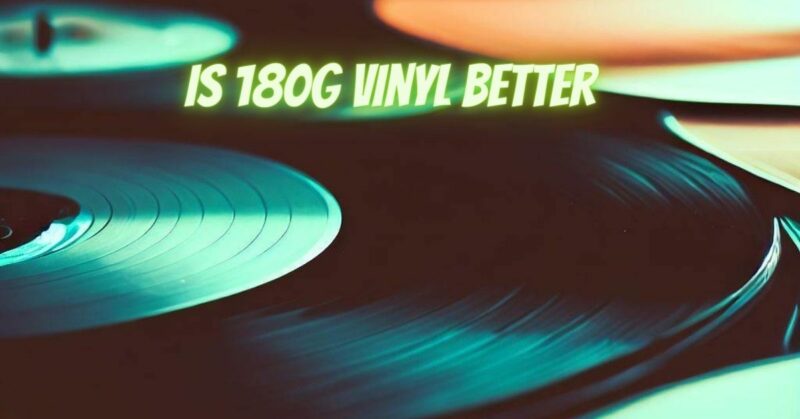As vinyl records continue to regain popularity in the world of music, enthusiasts often encounter various options, including records of different weights. One question that frequently arises is whether there’s an advantage to using 180g vinyl compared to other weight variations. In this article, we’ll delve into the world of vinyl record weights, with a particular focus on 180g vinyl, and explore the potential advantages it offers to audiophiles and collectors.
Understanding Vinyl Record Weights
Before we explore the advantages of 180g vinyl records, it’s essential to understand what record weight signifies:
- Standard Weight (120-140g): Most vinyl records produced during the format’s heyday were of standard weight, typically ranging from 120 to 140 grams. These records are relatively thin and flexible.
- Heavyweight (180g and Beyond): Heavyweight vinyl records, including 180g variants, are thicker and more substantial. They are often prized for their durability and potential sonic advantages.
Advantages of 180g Vinyl Records
- Enhanced Durability: One of the most apparent advantages of 180g vinyl records is their increased durability. The extra thickness and weight make them less prone to warping and damage, ensuring that they withstand the test of time.
- Reduced Resonance: The additional mass of 180g records can help dampen vibrations more effectively. This reduced resonance can lead to a quieter background and improved sound quality by minimizing unwanted noise.
- Improved Sound Quality: Many audiophiles argue that 180g vinyl records offer better sound quality due to their reduced resonance, resulting in a cleaner and more detailed audio playback. However, the extent of this improvement can vary depending on various factors, including the mastering and pressing quality.
- Collectibility: Collectors often gravitate toward heavyweight vinyl records, including 180g editions, as they are perceived as premium and desirable additions to a vinyl collection. Limited-edition and audiophile releases frequently opt for heavyweight vinyl to cater to discerning collectors.
- Audiophile Releases: Audiophile labels often favor 180g vinyl for their premium releases. These records may receive meticulous mastering and pressing processes, further enhancing their sonic characteristics.
- Less Susceptible to Warping: The thickness and weight of 180g vinyl make them less susceptible to warping when exposed to temperature fluctuations. This feature can be particularly important for those in regions with varying climates.
While 180g vinyl records offer several advantages in terms of durability, reduced resonance, and potential sound quality improvements, their appeal ultimately depends on individual preferences and the specific release’s mastering and pressing quality. For many audiophiles and collectors, 180g vinyl represents a desirable option that combines durability with the potential for enhanced audio playback. Whether you choose 180g or standard-weight vinyl, the joy of spinning records and immersing yourself in the analog sound experience remains at the heart of vinyl appreciation, regardless of the weight of the vinyl beneath the stylus.


